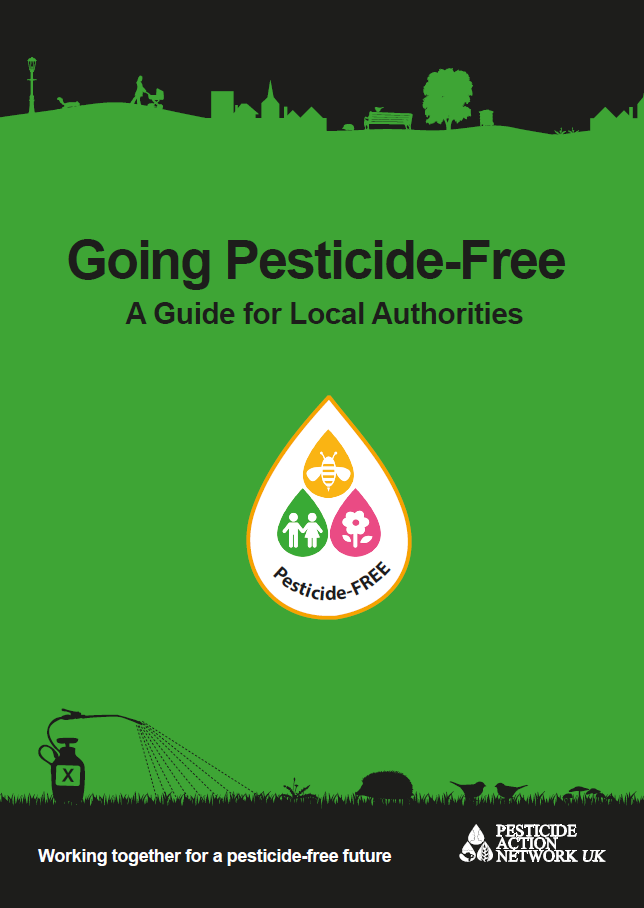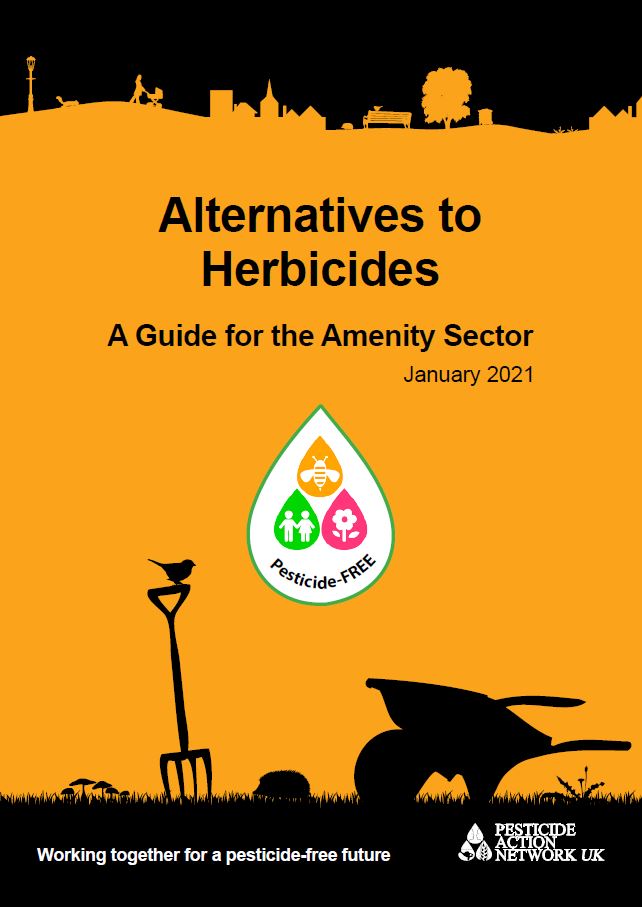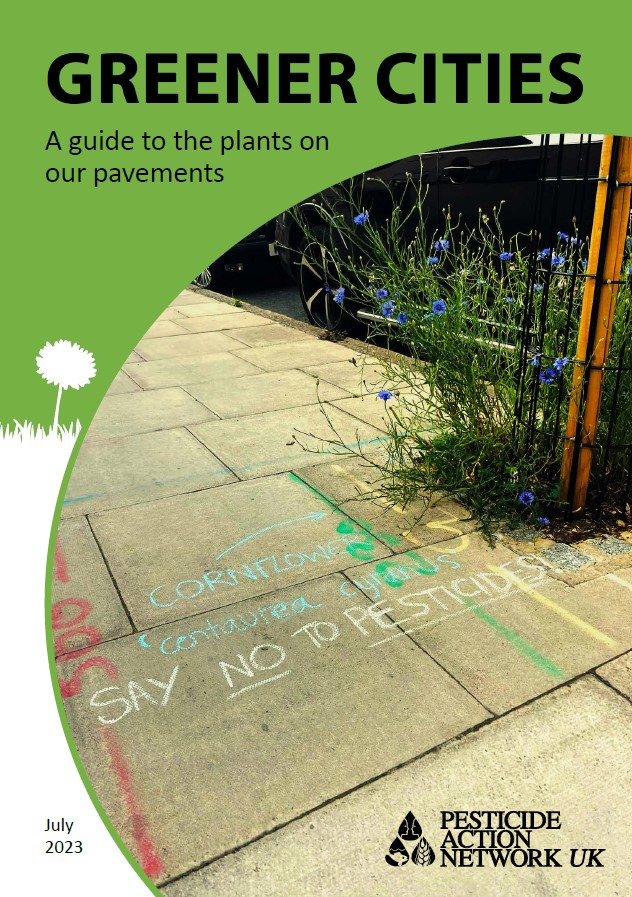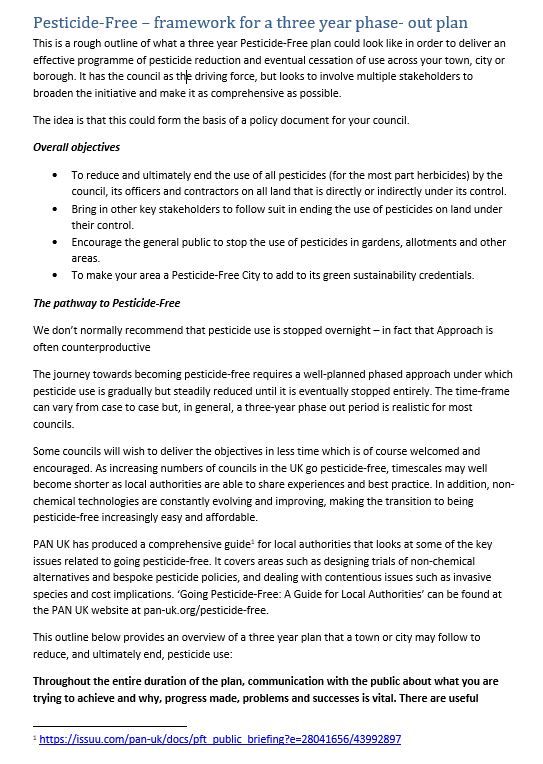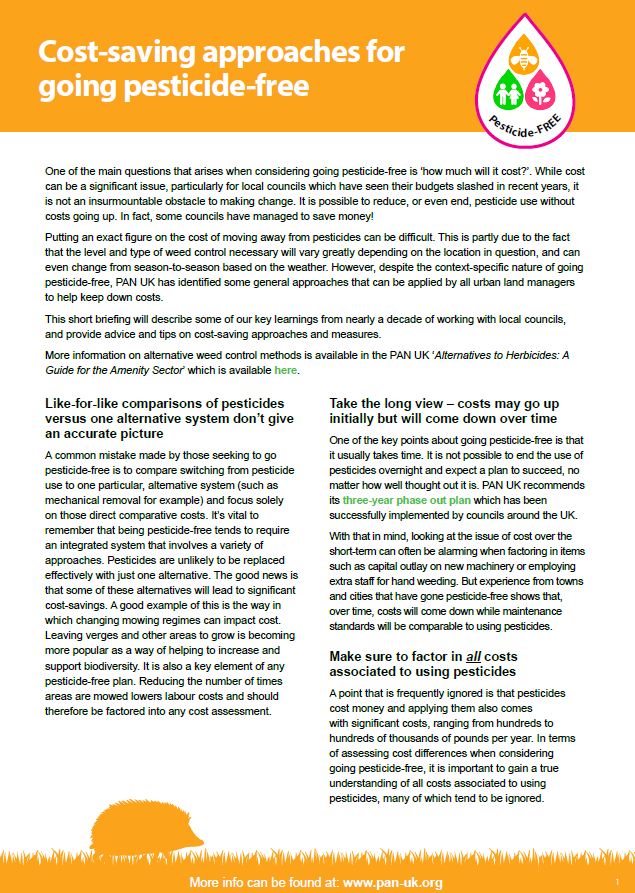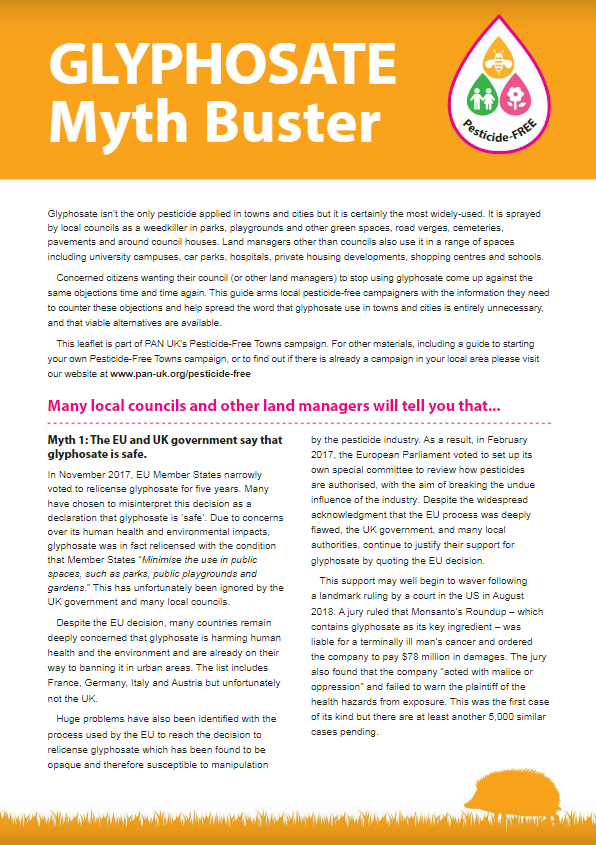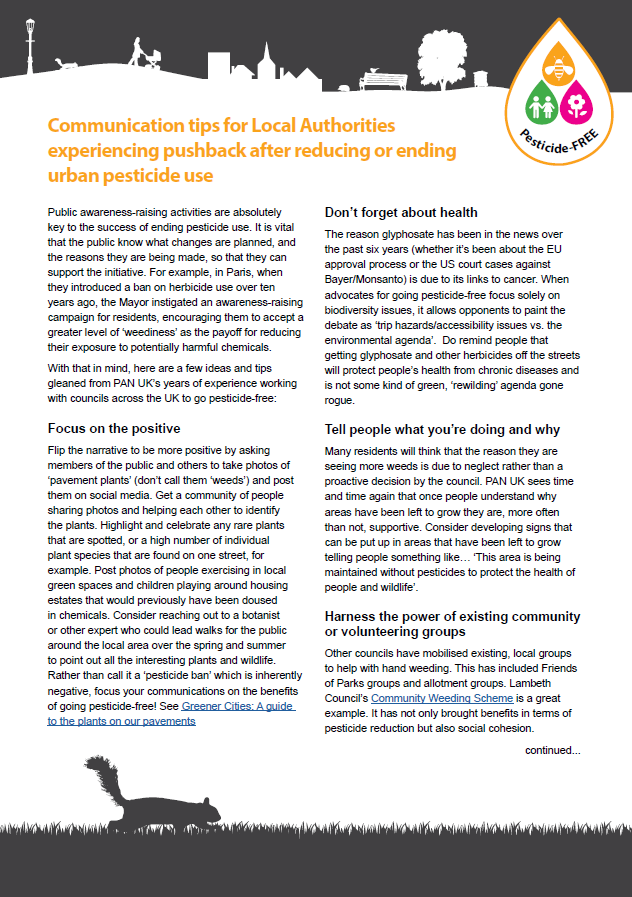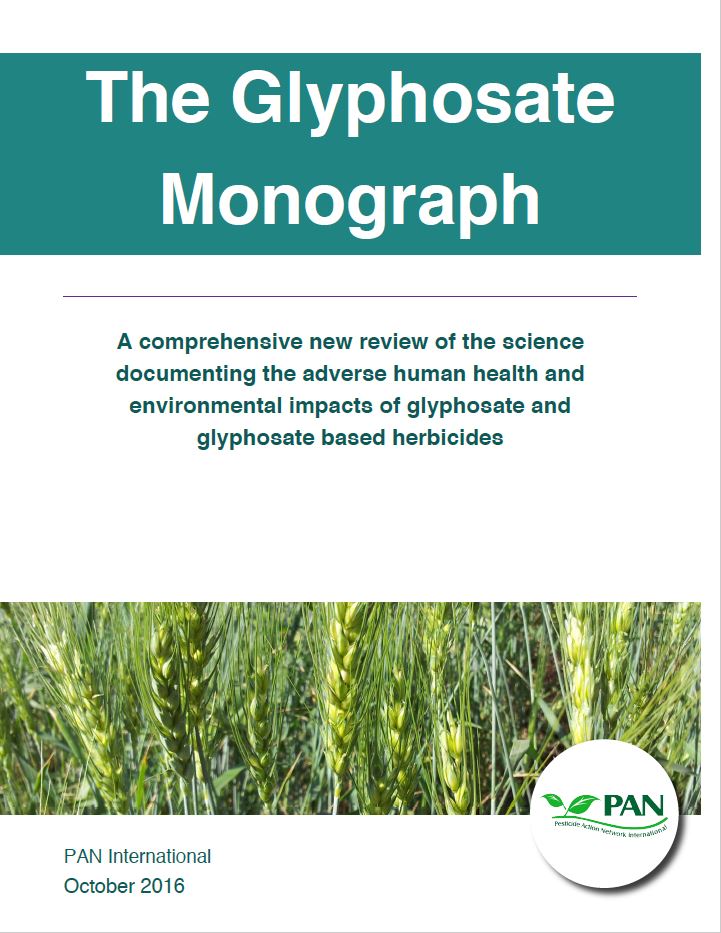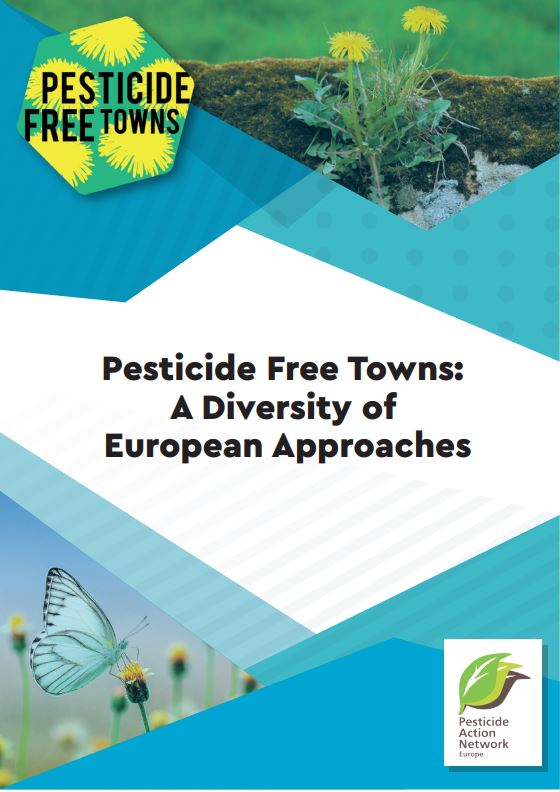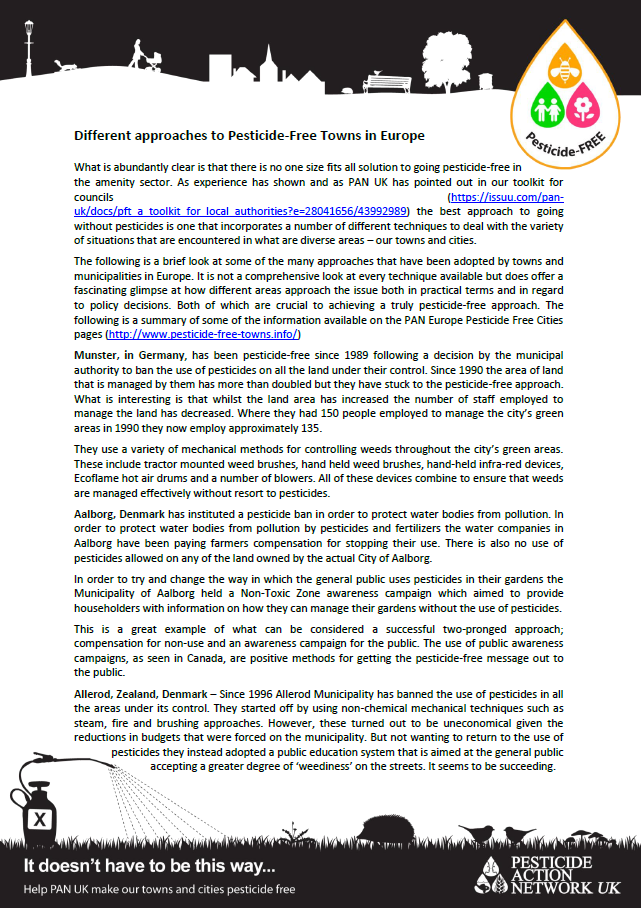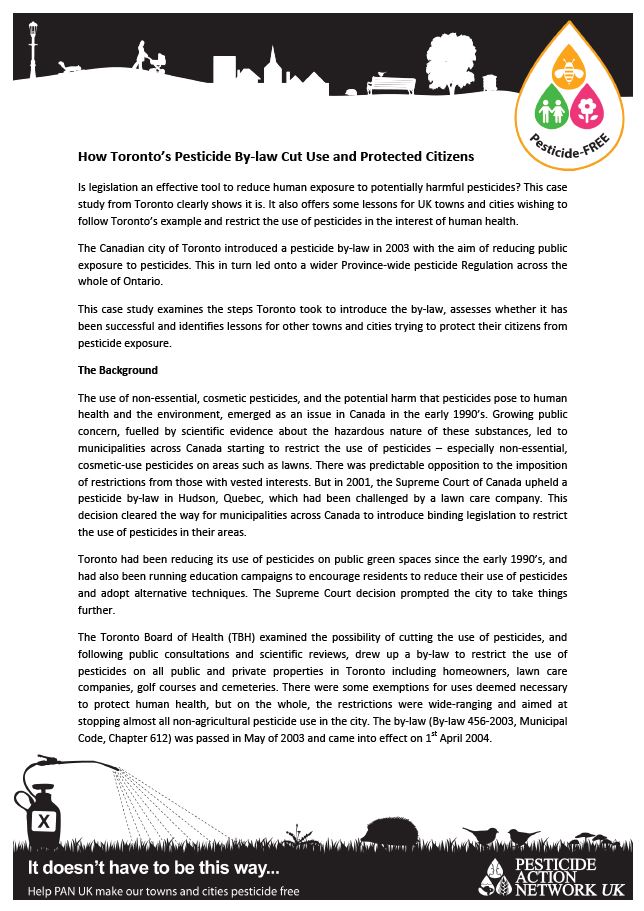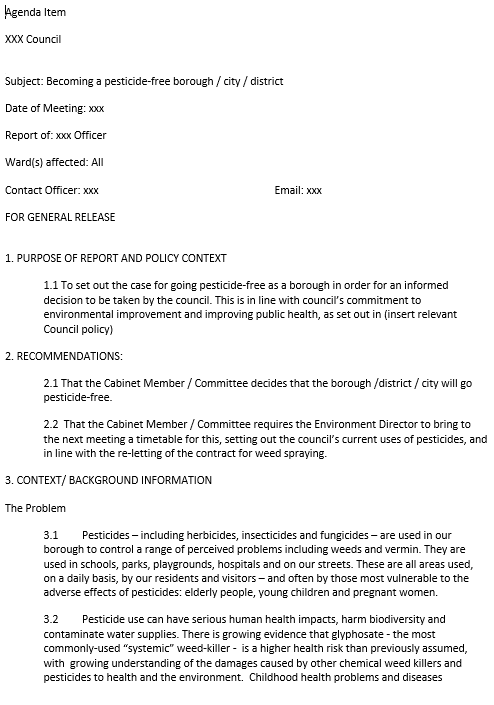Information for Local Authorities
There is increasing concern from citizens, local authorities and governments about the impacts of pesticides on human and environmental health. As a result, towns and cities across the UK are considerably reducing, if not completely eradicating the use of pesticides in urban spaces, and are switching to non-chemical methods of weed control. But there’s still a long way to go and we are here to help you make your local area pesticide-free.
PAN UK works with local councillors and council officers to develop a policy framework for a transition to non-chemical alternatives. We have successfully worked closely with councils like Bristol, Brighton, Lewes, Hammersmith & Fulham and more to achieve this, and we would love to hear from you.
Be part of the growing Pesticide-Free Towns movement and leave a lasting legacy for your local area which protects your constituents and the environment.
If you need guidance or advice on how to form a policy and a plan to switch to non-chemical alternatives in your town or city then we’re here to help. Email us on [email protected]
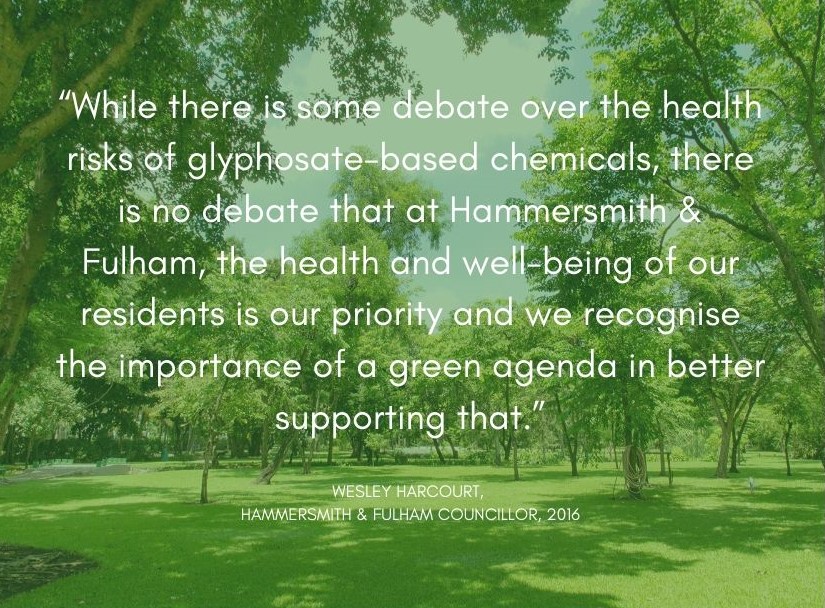
Pesticide-Free Towns Council Workshop
Pesticide-Free Towns: An Introduction
As part of the PAN UK commitment to reducing and stopping the use of pesticides in the towns and cities of the UK we have held a series of practical workshops for councillors, council officers and other decision-makers on the technical and practical aspects of going pesticide-free. Our most recent workshop was held in the London Borough of Hammersmith & Fulham on 29th June 2018 and was aimed specifically at London-based councils and organisations that manage significant amounts of land in the city.
There were a variety of presentations from experts in non-chemical alternatives to pesticides, the political issues associated with going pesticide-free and the practicalities of adopting a pesticide reduction strategy. As an aid for those that couldn’t attend the workshop all the presentations on the day were filmed and are presented below for you to watch and share with others.
If you have any questions about any of the presentations provided, or more generally about how PAN UK can assist you or your council in working to reduce and end the use of pesticides, please send an email to [email protected]
“Encouraging people to take ownership of their own neighbourhoods is something I personally feel strongly about.”
An Introduction to Alternatives
Workshop Closing Comments
“This is the beginning of what I think is going to be a powerful movement.”

